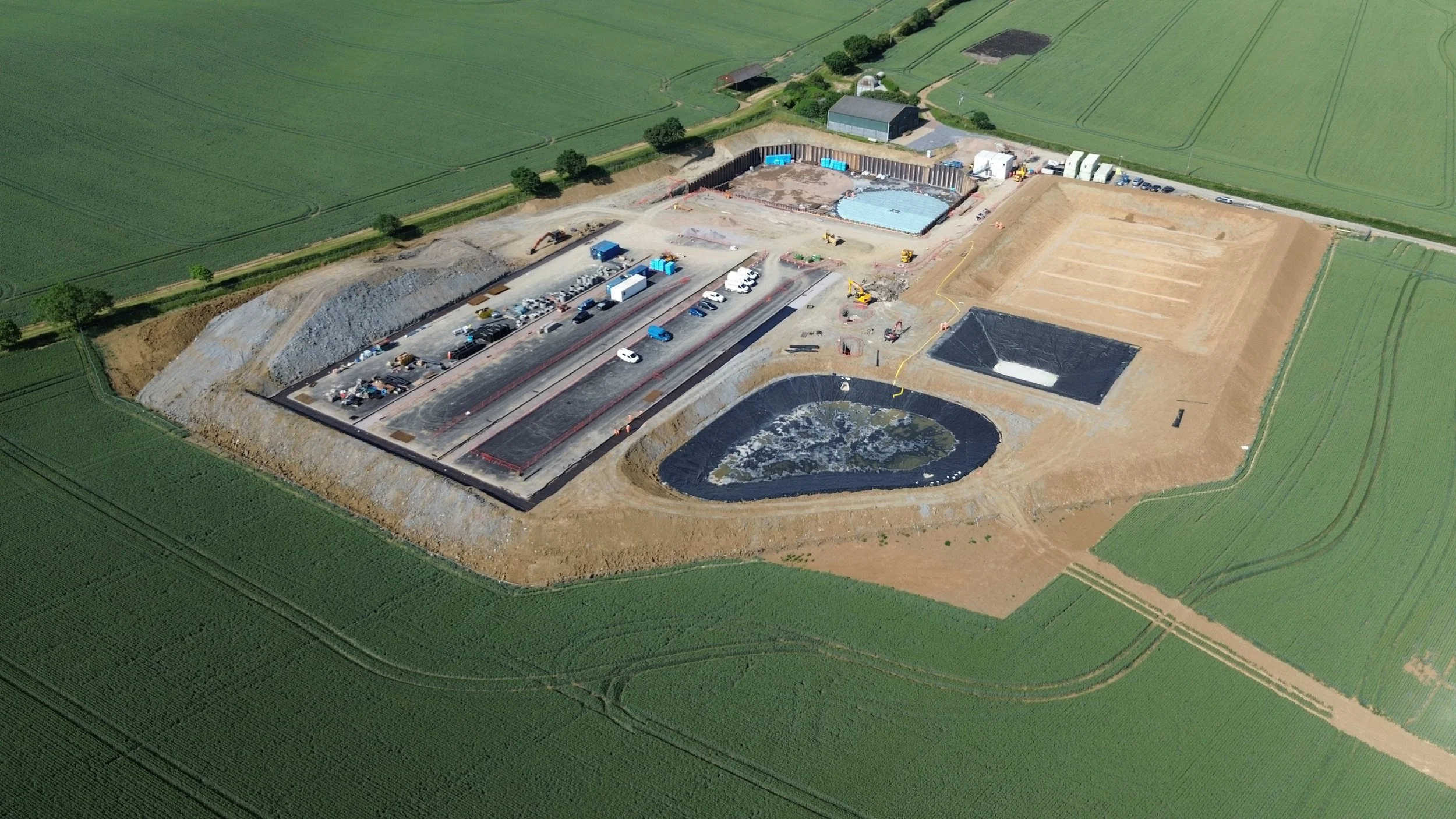Wormslade Green Energy
Anaerobic Digestion Plant
We have begun construction of an Anaerobic Digestion (AD) facility at Wormslade Farm, Clipston Road, Kelmarsh. The project is being facilitated by VIDA bioenergy. Anaerobic Digestion facilities play a vital role in converting manure, break crops and agricultural residues into renewable energy and nutrient-rich fertilisers, contributing to a more sustainable future.
You can access a document that addresses frequently asked questions about AD and the construction process here.
Contact Information
For general enquiries please contact Cem Sabri | contact@wormsladegreenenergy.com | +44 8082 710 588
For information on vacancies at Wormslade Green Energy AD Plant, please visit our careers page.
Construction Updates
On 11 February 2026, representatives from the Clipston, Great Oxendon and Arthingworth Parish Councils visited VIDA bioenergy Glentham to gain insight into the functioning of an operational biomethane plant, as Wormslade enters the final stages of construction. Read more about the visit and view photographs from the day on our LinkedIn page here.
As part of our work, we have upgraded and widened Clipston Road (Church Lane) to enhance safety and ease congestion during construction. This work has been completed and the road is now open and operating as normal. You can access the leaflet sent out to nearby resident which details the closure and points to some of the benefits that these road improvements will bring to locals in the long-term here.
To keep the community informed and involved we held a Public Information Event on Wednesday 5th February at Great Oxendon Village Hall, LE16 8NE. You can find the boards that were on display at the event here.
We held a second Public Information Event on Thursday the 10th July at Clipston Village Hall. You can access the invitational leaflet that has been sent out to local residents here. You can find the boards that were on display at the second event here.
Wormslade Green Energy Site Location
Key Benefits for the Local Area
-
We are committed to contributing positively to the local ecosystem. We will be planting over 4,000 native species and enhancing biodiversity around the site.
-
Construction, operation, and maintenance of AD plants create local employment opportunities.
Supports local businesses and services (e.g. transportation, engineering, and agricultural sectors).
-
Investment in AD projects often leads to improved infrastructure (roads, utilities) that benefit the wider community. At Wormslade we are upgrading the local road (Church Lane) and utility facilities (National Gas, Gigaclear and Openreach).
-
Reduces air and water pollution by managing waste in a controlled environment, lowering the risk of runoff and contamination of local water sources.
Helps meet local and national climate targets by contributing to lower greenhouse gas emissions.
-
Provides a sustainable solution for managing agricultural residues and reducing the need to spread manure on land, thereby improving diversion rates and protecting the environment.
-
The digestate produced can be used by local farmers as an organic fertiliser, enhancing soil quality and reducing the need for synthetic fertilisers.
Indicative Timeline
1. We started work on site for the Wormslade Green Energy AD Plant construction on 6th Jaunary 2025.
As part of our work, we have upgraded and widened Clipston Road (Church Lane) to enhance safety and ease congestion during construction. This work has been completed and the road is now open and operating as normal.
We are currently conducting the following works:
Construction of the digestor containment area, and pouring of the digestor tank bases.
Earthworks to form the site profile & create the lagoon and ponds.
Site drainage installation.
Formation of the maize clamp storage areas, and preparation for Clamp wall installation.
Installation of the site offices.
2. We expect primary and secondary digestors and major civil construction works to be complete in Q4 2025.
We expect the digestor walls to be constructed throughout August.
The major civils works are expected to be completed in Q4 2025 with mechanical feedstock & gas upgrading equipment also arriving in this period.
3. We expect to start gas processing systems in Q2 2026. The AD plant will then undergo a series of performance tests which are due to end in Q3 2026.
We expect the AD plant to be operational in Q3 2026.

Benefits of an AD Plant
-
AD plants generate biogas (a mixture of methane and CO2) which can be used for electricity, heat, or converted into biomethane for injection into the gas grid.
Reduces reliance on fossil fuels, contributing to energy security and the transition to renewable energy sources.
-
Provides an effective way to process agricultural residues and manure.
Reduces the volume of manure from field spreading, thereby reducing odour, nutrient run-off and destroying pathogens.
-
Helps mitigate climate change by capturing methane, a potent greenhouse gas, and converting it into useful energy.
Reduces emissions from the decomposition of manure in unmanaged environments.
-
The by-product of AD, known as digestate, is nutrient-rich and can be used as a natural fertiliser, improving soil health and reducing the need for chemical fertilisers.
-
AD helps control and reduce odours associated with the breakdown of manure through treatment of manures in a sealed digester in comparison to open composting or manure storage.
-
Supports a sustainable model where manure and agricultural residues are recycled into valuable resources like energy and fertiliser, promoting resource efficiency.
Vacancies
For information on vacancies at Wormslade Green Energy AD Plant, please visit our careers page.


